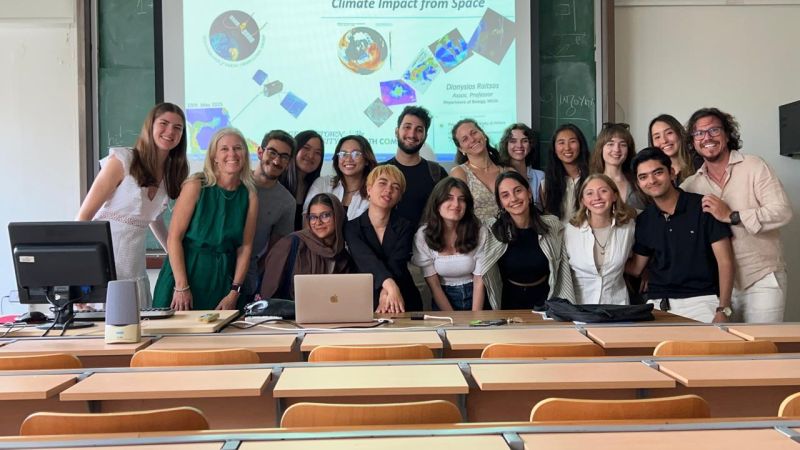Rising juniors from Georgetown University in Qatar (GU-Q) spent their summer break not in classrooms but on the Greek islands, where they tackled climate change and marine science using cutting-edge technology and on-the-ground research.
Students Adeena Hossain, Gwyneth Estomo, Tuan Nguyen, Raikhan Primbetova, and Saroosh Zahid were selected for the two-week program, “Sensing Marine Ecosystem Health & Climate Impacts from Space,” organized by Georgetown’s Earth Commons Institute in collaboration with National and Kapodistrian University of Athens (NKUA).
“It was an immersive experience that combined academia with hands-on oceanographic fieldwork,” said Adeena.
The program featured satellite data analysis, coastal sampling, and community engagement on Athens and Andros Island, led by Dr. Dionysios Raitsos (NKUA) and Dr. Jesse Meiller (Georgetown). Participants analyzed phytoplankton productivity, freshwater inflow effects, and seasonal upwelling to understand how climate change is reshaping marine ecosystems.
Their work culminated in presentations to local stakeholders and capstone projects using real-world satellite data. Adeena’s team investigated Oman’s upwelling impact, while Raikhan’s group examined Gulf of Mexico productivity. Tuan collaborated on a Western Equatorial Atlantic study, blending science with environmental humanities and policy.
Beyond research, students hiked Greek landscapes, visited sustainable farms, and built global networks with peers from NKUA and Georgetown DC.
“The solution to the climate crisis does not lie in technology but human beings,” reflected Tuan.
The initiative was developed by Dr. Raha Hakimdavar, GU-Q Research Professor and Senior Advisor to the Dean, as part of the university’s 20th anniversary focus on experiential learning and global engagement.

